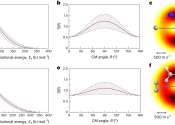'Semi-synthetic' bacteria churn out unnatural proteins
Synthetic biologists seek to create new life with forms and functions not seen in nature. Although scientists are a long way from making a completely artificial life form, they have made semi-synthetic organisms that have ...







